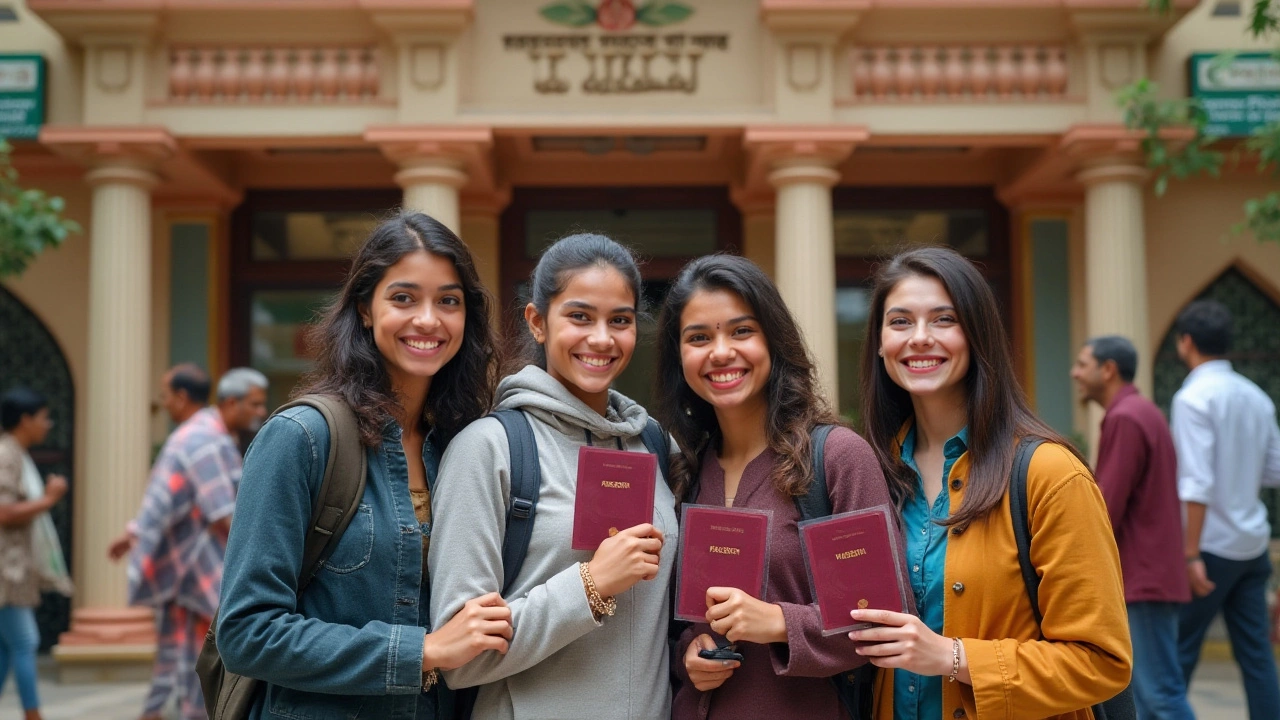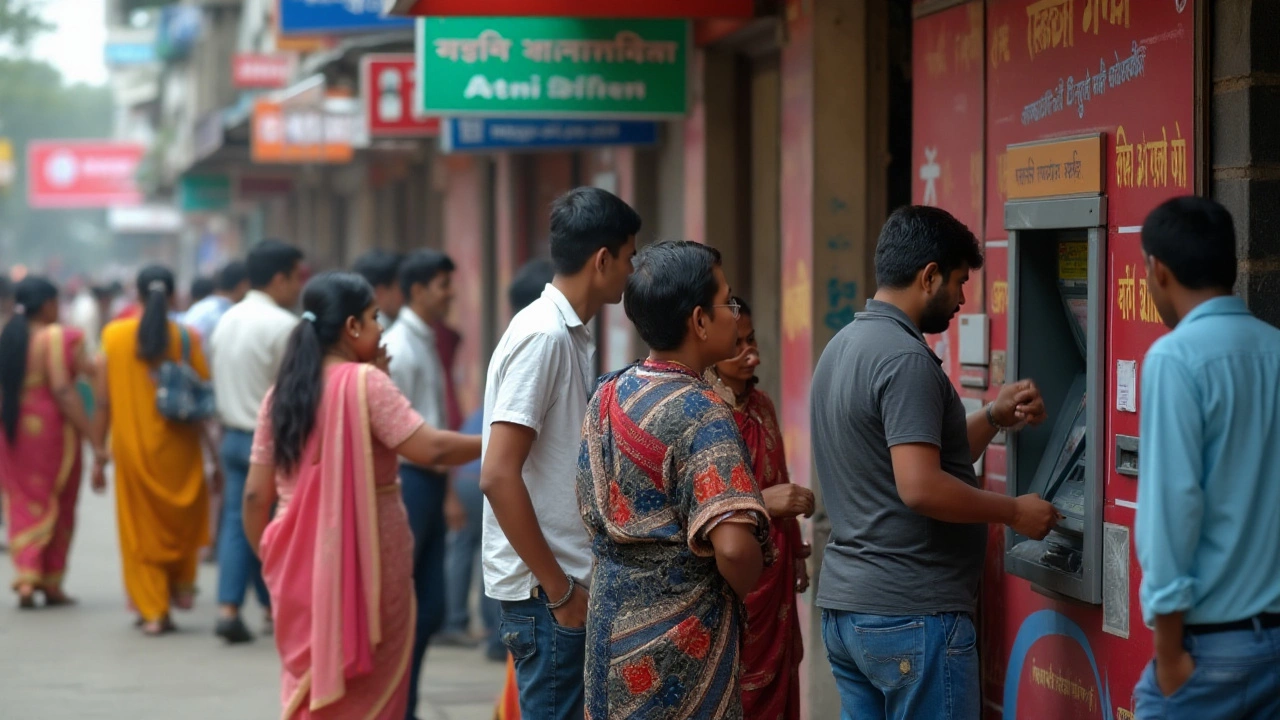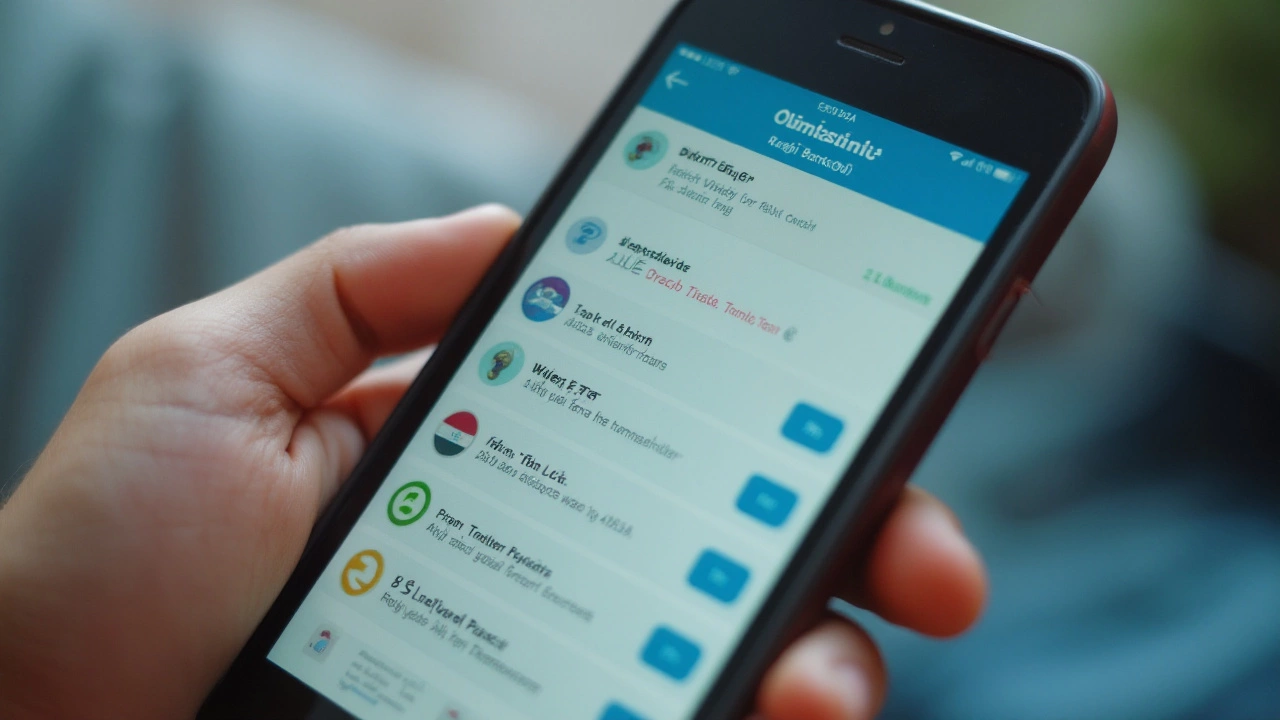 Jan, 28 2025
Jan, 28 2025
If you're a foreign national looking to engage in financial activities in India, one of the first things you might wonder is whether you can open a bank account without a PAN card. While the Permanent Account Number (PAN) is a pivotal part of India's banking framework, there are ways for foreigners to establish a bank account without one. Understanding this process can be instrumental in managing your stay or interactions in the country with greater ease.
The Reserve Bank of India allows certain flexibilities that cater to foreign nationals, and it's crucial to know what alternatives you have. Generally, banks require a PAN card for transactions due to tax regulations, but if you're not intending to stay long-term or earn income in India, there are paths you can take. These include providing various forms of identification and fulfilling specific bank requirements.
By learning about the processes involved and the tips to navigate them efficiently, you can better prepare yourself for banking activities here in India. Whether you're staying for a short period or have particular business interests, having this information at your fingertips can help make your banking endeavor less daunting and more productive.
- Why a PAN Card is Typically Required
- Alternative Documentation Options
- Step-by-Step Process for Foreigners
- Challenges and Useful Tips
Why a PAN Card is Typically Required
The PAN card, or Permanent Account Number, serves a multitude of functions in India and has become an indispensable element in the framework of the country's financial ecosystem. Primarily, this ten-digit alphanumeric identifier issued by the Indian Income Tax Department is crucial for tracking financial transactions which might have a taxable component. In India, where the drive towards a cashless economy is gaining momentum, having a PAN card is almost like having a passport for financial operations. Banks and financial institutions rely heavily on it to ensure compliance with income tax laws and facilitate transparency in monetary dealings.
When foreigners attempt to open a bank account in India, banks often emphasize the need for a PAN card for several reasons. One of the core reasons is to monitor all high-value transactions. This oversight helps in ensuring that taxable transactions are recorded and reported correctly. In a country with a diverse and dynamic economy like India, implementing such measures is seen as a vehicle to curtail tax evasion. More often than not, a PAN is a prerequisite for processes such as opening a bank account, purchasing properties, or investing in financial instruments.
The Role of PAN in Financial Transactions
PAN serves as a primary identifier in numerous financial transactions like opening a demat account, which is essential for trading in stocks. It also plays a significant role in property transactions, where any sale or purchase exceeding a certain limit mandates the use of PAN. Interestingly, having a PAN card is indispensable for availing loans because banks need to track an individual's financial history through credit checks, risk assessments, and establishing loan eligibility.The Finance Act introduced several measures aimed at making PAN an almost universal marker for economic transactions. Its widespread use and availability help in developing a robust financial dossier, as noted by the Financial Express, "The PAN card is not just a tool for the collection of taxes; it is a gateway to broader financial inclusions."
However, the necessity of a PAN card extends even beyond banking and taxation, providing a means of personal identification for various other purposes. For example, it is commonly required for obtaining SIM cards, foreign travel, and applying for various licenses. In short, the PAN card has become synonymous with one's financial identity in India, making it a focal point in both macro and microeconomic contexts.

Alternative Documentation Options
It might come as a surprise, but the Indian banking system does provide several pathways for foreigners who do not possess a PAN card. These alternatives are crafted to ensure that international visitors and business personalities can smoothly navigate financial operations during their stay. The good news is that banks in India, under specific conditions, are permitted by the Reserve Bank of India to accept other forms of documentation as proof.
Firstly, a passport remains the most critical document for identity verification. It's essential that your passport must be valid and clearly denotes your nationality and date of birth. Often, banks allow a combined form of identification—meaning, alongside a passport, you might also have to submit your visa details to specify the duration of your stay in India. In some cases, if applicable, the Overseas Citizen of India (OCI) card can also serve as a pertinent piece of documentation.
Another commonly accepted document is the letter of introduction or reference from an existing customer or company registered in India. A credible recommendation can serve as a powerful tool when navigating the bureaucracies involved in opening a bank account without a PAN card. Such letters need to typically outline your business or personal relationship with the individual or entity providing the reference, strengthening the bank's trust in your intent and presence in India.
Interestingly, many larger banks offer an option for non-resident accounts, namely NRO or NRE accounts, which don't always necessitate a PAN card. These accounts are specially designed for international individuals, allowing them to manage incoming funds from outside India. As such, several banks ask for proof of foreign residence, which can be substantiated through utility bills or lease agreements from your country of origin.
Adding more texture to this vibrant financial terrain, some banks might request a declaration form regarding the source of funds, particularly if substantial amounts are involved. This is largely because stringent anti-money laundering policies are in place, ensuring that all financial activities remain transparent. Besides, it helps the bank verify transactions and prevent illegal activities.
"Non-resident citizens or foreigners can open an Indian bank account without a PAN card, provided they use alternative documents and comply with the Reserve Bank's guidelines," states an official from the State Bank of India.
Understanding these requirements and keeping the necessary documents ready can significantly ease the process of opening an India bank account. Factoring in these alternative options makes it possible for foreigners to manage their finances conveniently, despite the absence of a PAN card. Knowledge in hand, your journey through banking in India can become a more straightforward affair, aligning with your personal or professional goals.

Step-by-Step Process for Foreigners
Opening a India bank account as a foreigner without a PAN card may sound challenging, but here's a comprehensive guide to help you through. The first thing to note is that many banks cautiously assist non-residents owing to regulations, but exceptions can be found with perseverance and the right preparation. Each financial institution might have unique protocols, so delving into the specifics of their requirements ahead of time can save you a lot of trouble.
Start by identifying which banks are known to have policies friendly towards non-residents, often referred to as NRO or NRE accounts. Make sure to look for branches in major cities as they tend to be more accommodating to international customers. It's essential to collect a set of alternative documentation. These usually include a valid passport, foreign travel visa, overseas address proof, and sometimes, a letter of introduction. An endorsement from a bank with which you already have a relationship can sometimes smoothen the process significantly.
Before you head to the bank, prepare yourself with preliminary information about the account types they offer to non-residents. Arrange all necessary documents meticulously, as the quality of your preparation can significantly impact the outcome. Be ready with an explanation about why the absence of a PAN card wouldn't hinder your tax obligations, if any. This reassures the bank about compliance adherence under India's financial regulations.
"The Reserve Bank of India has allowed a few selective relaxations for foreign nationals, but it's primarily about the selected bank's adherence to and understanding of these norms," suggests a financial analyst from a reputed bank.
After you're equipped with your documentation and prior knowledge, present yourself at the bank. It's crucial to have patience and understanding, as the process might include several discussions with the bank personnel highlighting your circumstances. Once you have submitted all the documents, banks typically run through internal checks before extending the provision of opening an account. It's not just about fulfilling the requirements, it's about convincing them of your genuine need for an account in India without a PAN card.
Finally, once all is set in motion, become diligent about monitoring the account activity to ensure everything aligns with the expected norms. Regular communication with the bank staff can be beneficial in preemptively addressing any future queries they might have. By maintaining good rapport and clear communication channels, you ensure smoother banking relations when dealing with India bank account protocols in the absence of a PAN card.

Challenges and Useful Tips
Embarking on the journey to open a bank account in India as a foreigner without a PAN card can feel akin to untangling a complex web, given the regulatory landscape. One primary challenge is navigating the plethora of documents required by banks in lieu of a PAN card. You might need to furnish a valid passport, visa details, and often, a letter of introduction from an employer or educational institution. Each bank might have slightly varying requirements, often dependent on the location or the bank's internal policies. It's essential to prepare multiple copies of these documents and have them certified if necessary, to expedite the verification process.
An equally significant challenge is understanding the purpose behind the PAN card requirement. It is essentially a tax identification number, crucial for financial transparency and taxation purposes. Without it, banks might impose certain restrictions on the type of account you can open, or they may limit your transaction capabilities. This is because without a PAN, transactions above a certain amount could lead to increased scrutiny under the country's tax regulations. Being aware of these limitations helps in planning appropriate financial activities and avoiding unexpected hurdles.
Tips to Facilitate the Process
- Research various banks and their specific requirements thoroughly before initiating the process. This will save you time and reduce the number of visits to the bank.
- Establish a contact within the bank, often a relationship manager, to guide you through the process. Having an insider's perspective can be invaluable.
- Consider applying for a PAN card even if your stay is short-term. The process may seem daunting, but it can simplify your banking considerably once acquired.
- Be ready to provide proof of address. If living in temporary accommodation, a letter from your landlord or hotel can sometimes suffice.
An informative resource states,
The Foreigners’ Division of the Ministry of Home Affairs allows reciprocal arrangements, under which foreign nationals from certain countries might find it easier to open accounts with minimal fuss.
It's also worth noting that emerging digital banking options are increasingly offering more flexible banking solutions for non-residents. These digital platforms often bypass traditional requirements, offering a more seamless experience. Before you step into a banking hall, check out online banking services that suit India bank account requirements without a PAN card India. Engaging with expatriates communities online can provide real-world advice to navigate these waters effectively. As India's financial landscape evolves, so too does the availability of information and resources, making your venture into open bank account successful and less of a labyrinth.